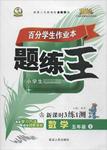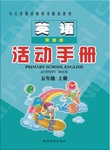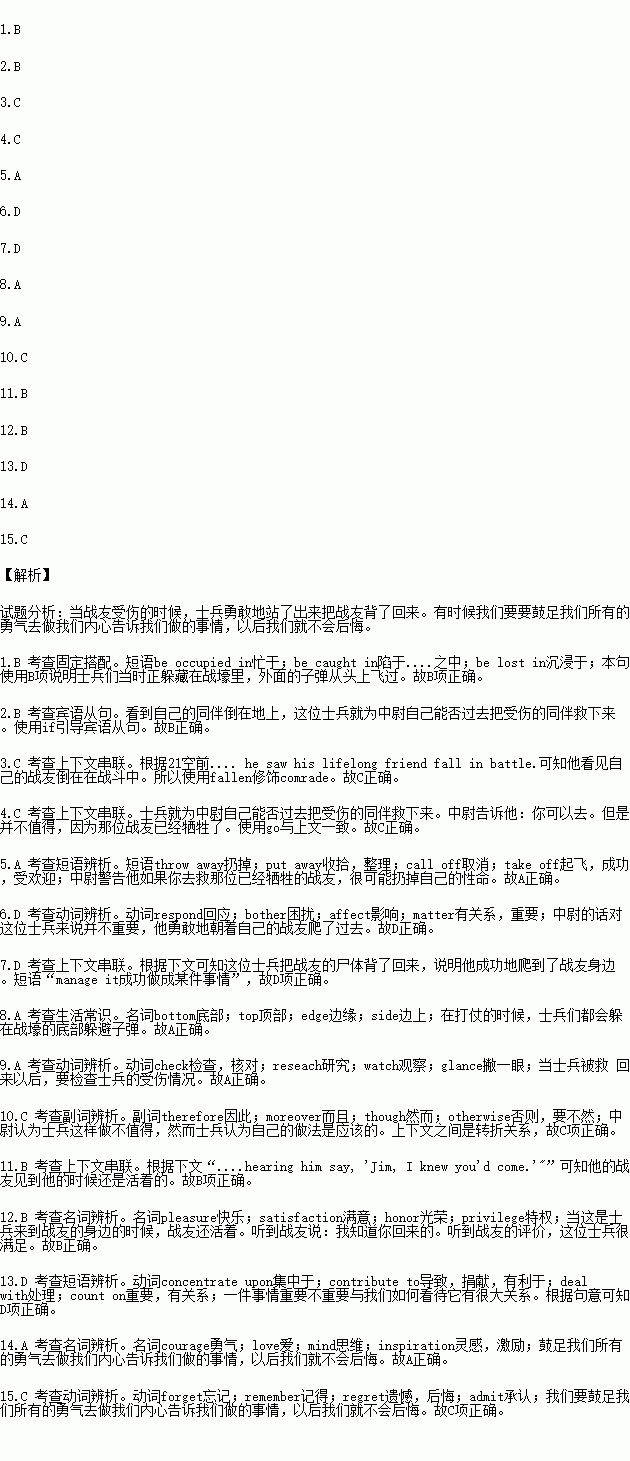题目内容
完形填空
Horror seized the heart of the World War ? soldier as he saw his lifelong friend fall in battle. _________in a trench (战壕) with continuous gunfire whizzing over his head, the soldier asked his lieutenant _________he might rush out into the "No Man's Land" between the trenches to bring his_________ comrade back.
"You can _________ ," said the Lieutenant, "but I don't think it will be worth it. Your friend is probably dead and you may _________ your own life." The Lieutenant's words didn't _________ , and the soldier headed there anyway.
Amazingly he _________ to reach his friend, lifted him onto his shoulder, and brought him back to their company's trench. As the two of them rolled over together to the _________ of the trench, the officer _________ the wounded soldier, then looked kindly at his friend. "I told you it wouldn't be worth it," he said. "Your friend is dead, and you are seriously wounded.”
"It was worth it, _________ , sir," the soldier said.
"How do you mean 'worth it'?" responded the Lieutenant. "Your friend is dead!"
"Yes sir," the private answered. "But it was worth it because when I got to him, he was still _________ , and I had the _________ of hearing him say, 'Jim, I knew you'd come.'”
Many a time in life, whether a thing is worth doing or not really _________ how you look at it. Take up all your _________ and do something your heart tells you to do so that you may not_________ not doing it later in life.
1.A. OccupiedB. CaughtC. EmployedD. Lost
2.A. asB. ifC. untilD. when
3.A. unconsciousB. deadC. fallenD. stricken
4.A. leaveB. stayC. goD. fight
5.A. throw awayB. put awayC. call offD. take off
6.A. respondB. botherC. affectD. matter
7.A. attemptedB. meantC. tendedD. managed
8.A. bottomB. topC. edgeD. side
9.A. checkedB. researchedC. watchedD. glanced
10.A. thereforeB. moreoverC. thoughD. otherwise
11.A. awakeB. aliveC. injuredD. refreshed
12.A. pleasureB. satisfactionC. honorD. privilege
13.A. concentrates uponB. contributes toC. deals withD. counts on
14.A. courageB. loveC. mindD. inspiration
15.A. forgetB. rememberC. regretD. admit
 百分学生作业本题练王系列答案
百分学生作业本题练王系列答案 互动课堂系列答案
互动课堂系列答案
